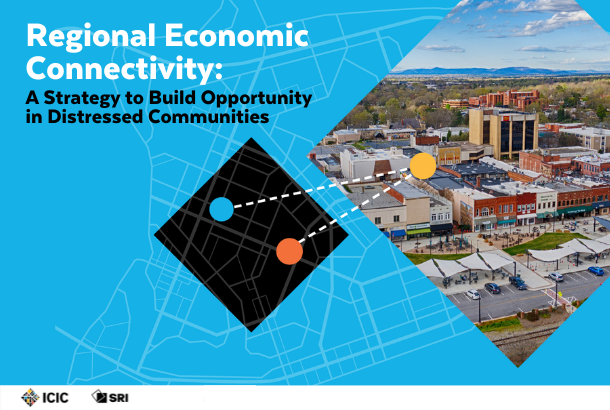Blog: Research

The Evolution and Landscape of Under-Resourced Communities
In the past forty years, the landscape of concentrated poverty in the United States has changed. The Evolution and Landscape of Under-Resourced Communities in U.S. Metropolitan Areas, published in the journal Economic Development Quarterly, traces the evolution of under-resourced communities in U.S. metropolitan areas from 1980 to 2019. The article describes in depth the changes seen in under-resourced communities, including:
- The share of metropolitan residents who live in under-resourced communities has grown.
- Under-resourced communities have become more racially diverse, with expanding shares of white and Hispanic/Latino residents. Though the share of Black URC residents has fallen, Black residents continue to make up a substantive share of the under-resourced community population.
- Under-resourced communities have become more suburban, although most of their residents still live in central cities.

Exploring Inequities in Small Business Success: Using ICIC and Small Business Majority’s Interactive Tool to Describe Small Businesses in Your Community
The Structural Barriers to Small Business Success interactive map tool, developed by ICIC and Small Business Majority, provides critical insights into the challenges faced by small businesses in various communities, particularly those of color. Following the dynamic webinar demonstrationing and discussing the practical applications of the tool, lead project researchers have developed case studies on two cities, Chicago and Atlanta, to highlight the uses of the tool. The case studies highlight key features of the interactive map, including understanding business success across racial and ethnic lines, determining whether businesses located in communities of color perform differently than those in majority-white neighborhoods, and exploring how wages vary by business size. Read More

Connectivity: A New Place-Based Strategy for Distressed Communities
Regional economic connectivity is an economic, workforce, and community development strategy that focuses on industry clusters that are thriving in the broader region and establishing them within under-resourced communities (URCs). To better understand how well and under which circumstances distressed communities benefit from regional economic connectivity, ICIC and SRI examined geographic patterns of industry cluster employment in 181 metropolitan areas using a combination of data analysis and case study evidence. The result of this study is the new report Regional Economic Connectivity: A Strategy to Build Opportunity in Distressed Communities. Findings in the report indicate that URC economic connectivity is more prevalent in small and medium-sized metropolitan areas, suburban URCs, clusters that are highly specialized regionally, manufacturing-based clusters, clusters with low educational requirements for entry-level workers, and lower-wage clusters. The report also indicates a significant opportunity for economic developers and their partners to target asset development and other strategic investments to grow regionally strong clusters in URCs. Read More

ICIC’s Research: A Catalyst for Change in Diversifying Real Estate Development
ICIC's recent research has emerged as a catalyst for change in diversifying real estate development, shedding light on the stark underrepresentation of Black and Hispanic developers who collectively make up less than 1% of private developers nationwide. The groundbreaking report, "Breaking the Glass Bottleneck," quantifies this representation crisis and emphasizes the pivotal role of access to public and private resources for the growth of developers of color. The research has not only unveiled disparities but has also influenced policies and initiatives, including the Massachusetts Affordable Housing Emerging Developer Report, which identifies key opportunities and challenges faced by developers of color. As the industry grapples with challenges, ICIC's research stands as a guiding force toward positive transformation and equitable opportunities in real estate development. Read More

Searching for the Golden Mountain
Asian poverty is often overlooked. The model minority myth describes Asian Americans as uniformly affluent and educated. Yet many Asian American and Pacific Islander (AAPI) groups have high poverty levels. Treating Asian Americans and Pacific Islanders as one uniform group fails to recognize the diversity in poverty rates among ethnic groups and ignores the many AAPI groups in which poverty is a major problem. Read More

